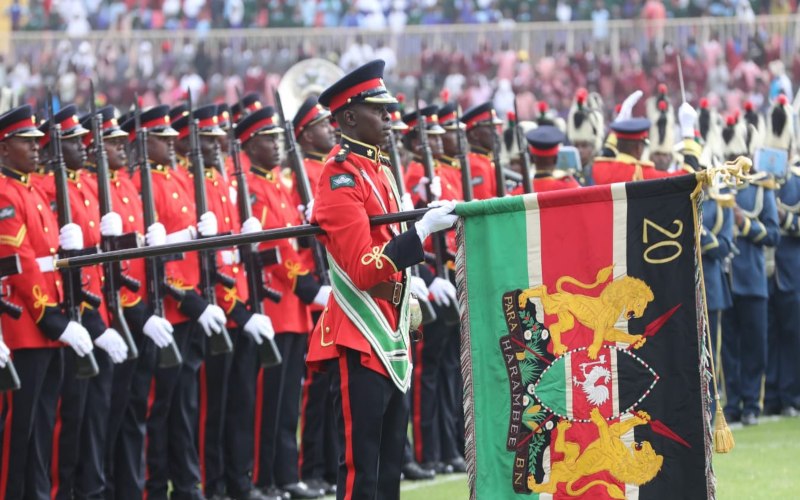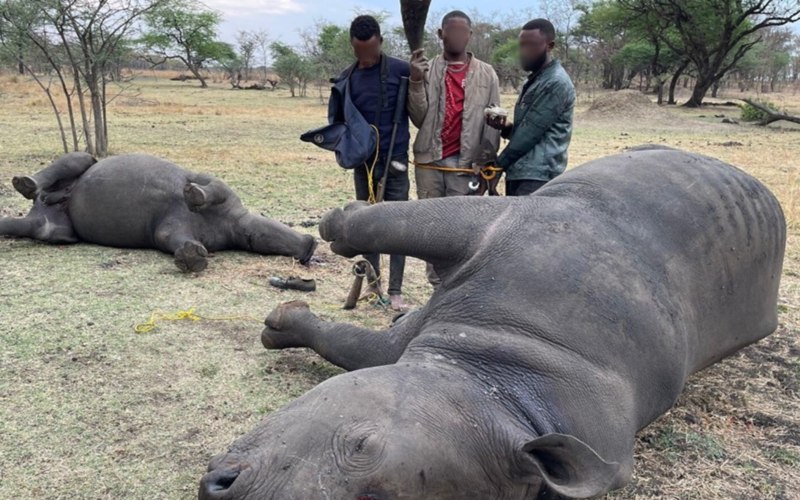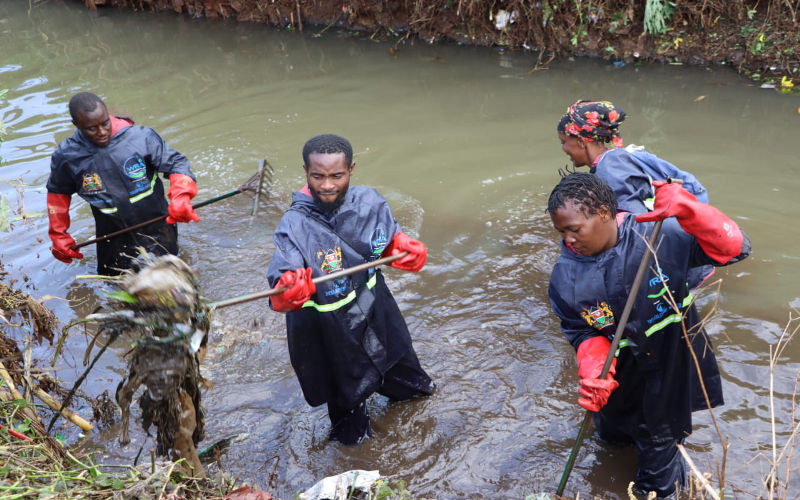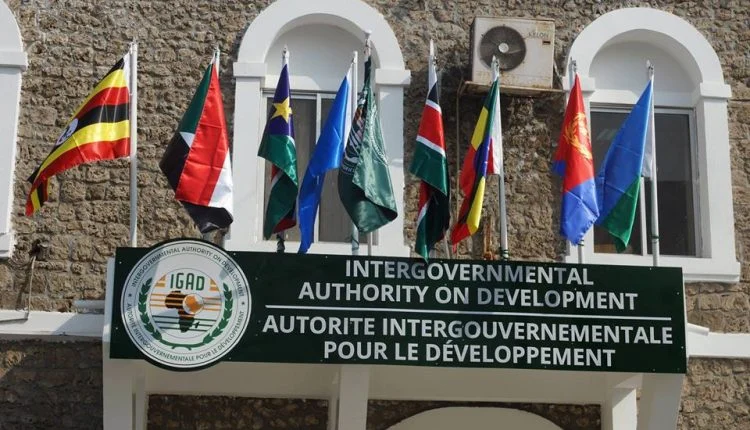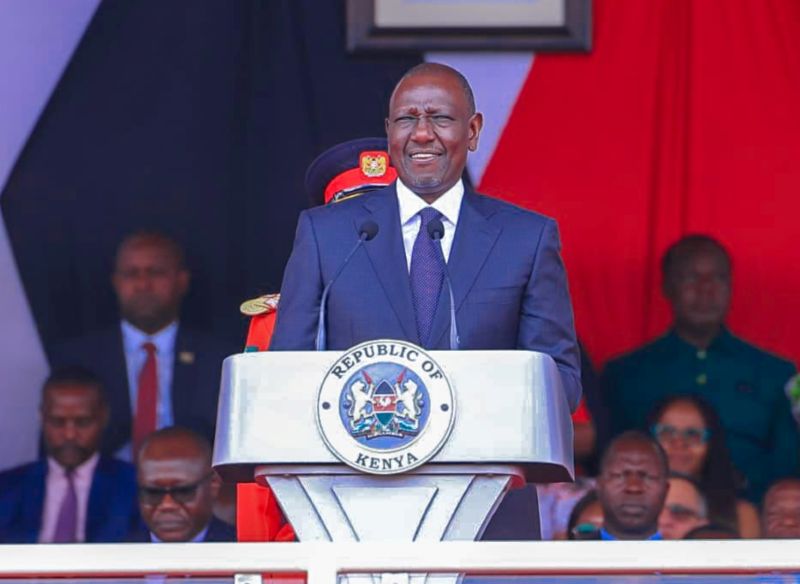EACC probes University of Nairobi over alleged land mismanagement, fraud
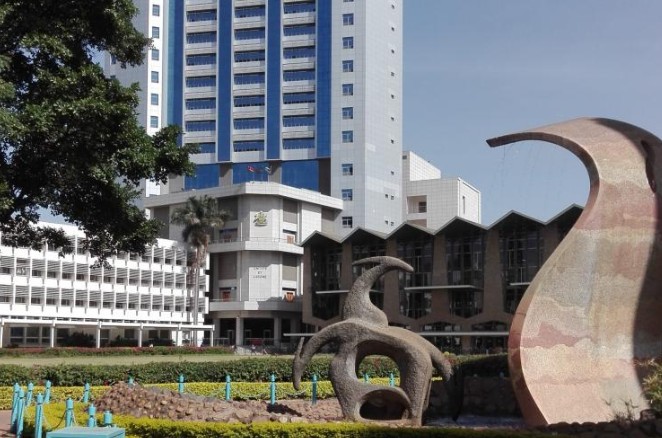
The EACC has now requested that the acting Vice Chancellor, Prof. Margaret Hutchinson, to provide documents related to the university’s properties whose acquisition and lease agreements are currently under scrutiny.
Allegations of mismanagement and fraud have rocked the University of Nairobi, with the Ethics and Anti-Corruption Commission (EACC) now demanding answers over how vast parcels of land ended up in private hands without proper documentation.
According to the anti-corruption watchdog, the university is under investigation for allegedly mismanaging properties worth billions of shillings, including prime real estate in and outside Nairobi County.
More To Read
- County expenditure share by sector (FY2023/24)
- Haki Yetu, Buxton tenants demand EACC action on controversial housing project
- Kenya saves Sh16.5 billion as EACC strengthens anti-corruption measures
- 152 officers fail integrity tests as EACC flags widespread ethical breaches
- EACC intensifies war on corruption, recovers Sh3.4 billion in assets
- EACC seeks access to mobile money data, more powers to fast–track graft cases under new bill
The EACC has now requested the acting Vice Chancellor, Prof. Margaret Hutchinson, to provide documents related to the university’s properties whose acquisition and lease agreements are currently under scrutiny. Prof. Hutchinson has been given until Monday, April 7, 2025, to comply with the request.
The properties under investigation include hundreds of acres of land as well as residential properties in upmarket areas such as Lavington, Ngong Road, Arboretum Drive and Spring Valley.
Among the specific parcels being probed are 10 acres in Kanyariri farm, 40 acres behind ANP hostels in Loresho, 100 acres at the Kibwezi Field Station, and 20 acres leased to Shamba Cafe Hotel in Loresho Ridge. Additionally, six acres next to Dusit Hotel and land near a shopping center in Spring Valley are also part of the investigation.
An EACC’s letter to Prof. Hutchinson requests a range of documents, including lease or tenancy agreements, minutes from meetings that approved the leases, any correspondence between the university and the lessees, proof of any changes in land usage, and any other relevant information to assist in the investigation.
“To finalise our investigations, kindly but urgently forward the following documents and information in relation to the above listed parcels, lease or tenancy agreements, minutes approving the leases or tenancies, correspondences between the University and leasing the parcels, proof of any change of user to the land if any, and any other relevant documents or information,” reads the letter.
The probe follows concerns from the University Academic Staff Union (UASU), which called for an investigation into the university’s financial management.
UoN chapter secretary of UASU, Maloba Wekesa, highlighted issues raised by the Auditor General’s report, which questions the leasing of university-owned land. The report cited a number of properties, including Lower Kabete Road LR No. 1870/111/71, Kayahwe Road House LR No. 1/203, Spring Valley LR No. 7468/9, and the Old Council Offices in Hurlingham.
“The Auditor General’s report raised various questions, including leases of University land. For example, no information was provided about how the lessors were identified, and the income stream from the rented properties could not be traced in the university’s accounts,” Wekesa said.
“In one instance, the Auditor General noted that a parcel was leased to an unknown person.”
Additionally, the report raised concerns over the management of funds allocated for the proposed construction of the University of Nairobi’s Engineering and Science Complex.
“Massive irregularities have been noted in the administration of funds, including Sh100 million spent mainly on payment of allowances and a feasibility study, with no tangible progress on the ground,” Wekesa added.
In response to the revelations, Prof. Hutchinson appeared before the National Assembly’s Education Committee, where she disclosed that the university currently faces Sh13 billion in unpaid bills, which include outstanding payments to the Kenya Revenue Authority (KRA), pension contributions, NSSF, housing levies, staff bank loans, insurance companies and staff welfare expenses.
The ongoing investigation highlights growing concerns over the management and allocation of resources at one of the country’s premier educational institutions.
Top Stories Today







